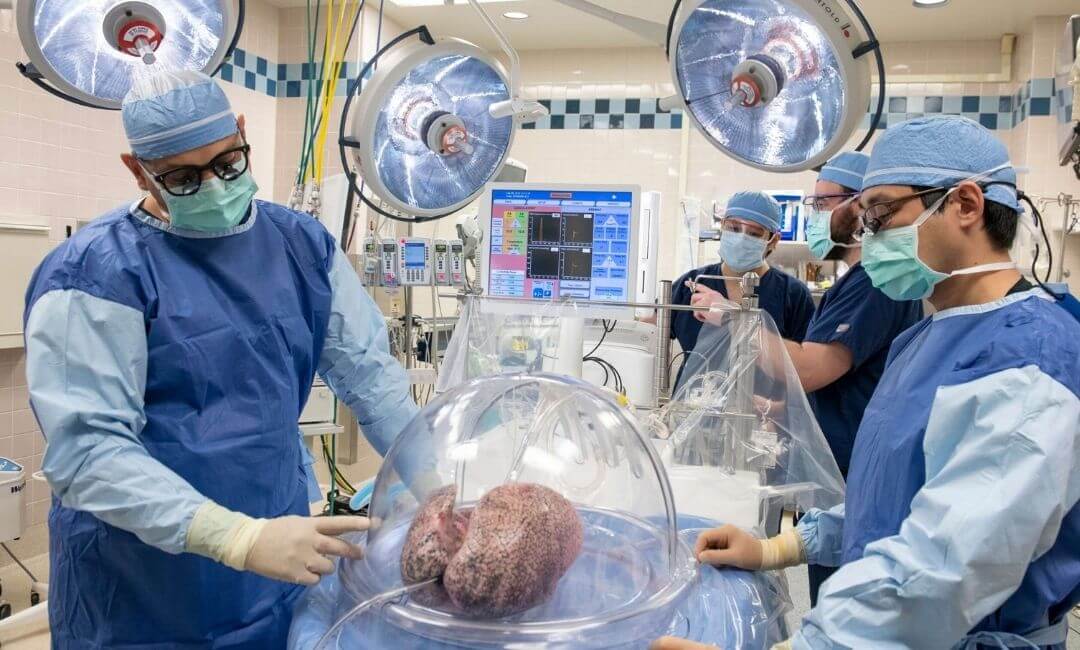Many medical ailments are hard to treat, with few effective therapeutic options available. For pulmonary disease, the last resort for many conditions, such as chronic obstructive pulmonary disease (COPD) or pulmonary fibrosis, is lung transplantation, where one or both lungs are removed and replaced by healthy donor lungs, but the process is not without its complications.
For lung transplant recipients, one of the most common post-operative complications is chronic lung allograft dysfunction (CLAD), where lung function declines due to the restriction or obstruction of airflow, affecting half of all transplant recipients by 5 years.
Researchers in the Division of Pulmonary, Allergy, Critical Care, and Sleep Medicine (PACCSM) are investigating ways to lessen the possibility of CLAD and improve survival rates in lung transplant recipients. With limited therapeutic options to prevent or reverse CLAD, Mark Snyder, MD, is among those examining how tissue-resident immunity promotes immunopathology in the human lung and translating his findings into discovering potential therapeutic targets to prevent lung fibrosis and CLAD after lung transplantation.
“Once lung transplant patients develop CLAD, they begin to experience the progressive onset of shortness of breath, leading to high morbidity and early mortality. There is a paucity of therapies available to reduce the incidence of CLAD or reverse the immunopathology. Our group at the University of Pittsburgh is dedicated to developing novel drugs aimed to prevent the development of or reverse the damage associated with CLAD.”
Now, Snyder and other PACCSM researchers have published a new study in JCI Insight that provides a new avenue of exploration for how to increase one’s chances of survival. To identify potential targets for CLAD prevention, Snyder et al. isolated T cells from explanted CLAD lungs and lung-draining lymph nodes and performed single-cell RNA and T cell receptor sequencing. They found that cytotoxic CD8+ tissue-resident memory T cells (TRMs) accumulated around the CLAD airways with a 100-fold increase in clonal overlap with lung-draining lymph nodes when compared with non-CLAD lungs.
Further examinations confirmed that this accumulation was ultimately due to chronic rejection and not transplantation alone. Subsequent experiments showed a significant reversal of pathophysiology, including an increase in inspiratory capacity, in mice that were treated with an NKG2D-blocking antibody, suggesting NKG2D may be a potential therapeutic target to reduce the severity of CLAD and improve long-term survival post transplantation.
JCI Insight study:
Moghbeli K, Lipp MA, Bueno M, Craig A, Rojas M, Abbas M, Lakkis ZI, Chuan B, Sembrat J, Noda K, Kass DJ, Chen K, Fan L, Oury T, Zhou Z, Wang X, McDyer JF, Eickelberg O, Snyder ME. NKG2D blockade impairs tissue-resident memory T cell accumulation and reduces chronic lung allograft dysfunction. JCI Insight. 2025 Feb 24;10(4):e184048. PMID: 39989456; PMCID: PMC11949055.

